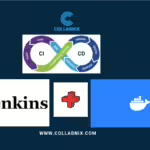 Check out more Jenkins topics on Collabnix Streamlining CI/CD Pipelines with Docker and Jenkins in 2025 By Adesoji Alu Hey there, fellow engineers and tech enthusiasts! I’m thrilled to share one of my favorite strategies for modern software delivery: combining Docker and Jenkins to supercharge your CI/CD pipelines. Throughout my career as a Software/DevOps Engineer […]
Check out more Jenkins topics on Collabnix Streamlining CI/CD Pipelines with Docker and Jenkins in 2025 By Adesoji Alu Hey there, fellow engineers and tech enthusiasts! I’m thrilled to share one of my favorite strategies for modern software delivery: combining Docker and Jenkins to supercharge your CI/CD pipelines. Throughout my career as a Software/DevOps Engineer […]
Stay Ahead with Docker Insights and Innovations

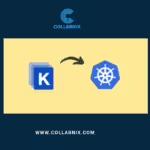 Check out more Kubernetes topics on Collabnix Introduction Managing Kubernetes configurations can be complex, especially with the plethora of tools available for configuring workloads and deploying applications. Kustomize stands out as a unique and popular tool for generating, transforming, and patching Kubernetes configurations without introducing custom DSLs or parameter-driven templates. In this post, we will […]
Check out more Kubernetes topics on Collabnix Introduction Managing Kubernetes configurations can be complex, especially with the plethora of tools available for configuring workloads and deploying applications. Kustomize stands out as a unique and popular tool for generating, transforming, and patching Kubernetes configurations without introducing custom DSLs or parameter-driven templates. In this post, we will […]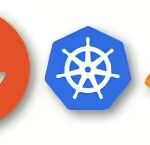 Introduction Monitoring and alerting are crucial aspects of managing Kubernetes clusters. Prometheus is a powerful open-source monitoring and alerting toolkit that is widely used in Kubernetes environments. This guide explains how to successfully install Prometheus on MicroK8s and solve the common TLS certificate issue that may arise during the process. Prerequisites A working MicroK8s installation. […]
Introduction Monitoring and alerting are crucial aspects of managing Kubernetes clusters. Prometheus is a powerful open-source monitoring and alerting toolkit that is widely used in Kubernetes environments. This guide explains how to successfully install Prometheus on MicroK8s and solve the common TLS certificate issue that may arise during the process. Prerequisites A working MicroK8s installation. […]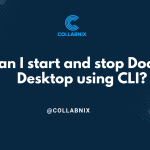
 Docker Desktop version 4.37 and later introduces the Docker Desktop CLI, a powerful tool that allows developers to manage key Docker Desktop operations directly from the command line. This addition significantly enhances automation capabilities and streamlines the developer experience, particularly for those working with CI/CD pipelines. In this blog, we’ll explore the Docker Desktop CLI, […]
Docker Desktop version 4.37 and later introduces the Docker Desktop CLI, a powerful tool that allows developers to manage key Docker Desktop operations directly from the command line. This addition significantly enhances automation capabilities and streamlines the developer experience, particularly for those working with CI/CD pipelines. In this blog, we’ll explore the Docker Desktop CLI, […]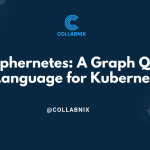
 Kubernetes has become the backbone of modern cloud-native architectures, yet querying and interacting with it at scale often feels like navigating a labyrinth. Tools like kubectl, jq, and jsonpath are indispensable, but they lack the expressive power needed for querying complex relationships across Kubernetes objects. Enter Cyphernetes, a graph-query language inspired by Cypher, which promises […]
Kubernetes has become the backbone of modern cloud-native architectures, yet querying and interacting with it at scale often feels like navigating a labyrinth. Tools like kubectl, jq, and jsonpath are indispensable, but they lack the expressive power needed for querying complex relationships across Kubernetes objects. Enter Cyphernetes, a graph-query language inspired by Cypher, which promises […]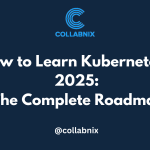
 Learning Kubernetes, a powerful tool for managing containers, is now a must-have skill for developers, DevOps engineers, and IT professionals. As more industries use it, knowing Kubernetes can really boost your career. This skill is especially important in fields like technology, finance, healthcare, and e-commerce, where there’s a big need for scalable and reliable app […]
Learning Kubernetes, a powerful tool for managing containers, is now a must-have skill for developers, DevOps engineers, and IT professionals. As more industries use it, knowing Kubernetes can really boost your career. This skill is especially important in fields like technology, finance, healthcare, and e-commerce, where there’s a big need for scalable and reliable app […]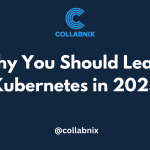
 The tech world is changing really fast. Just 3 years ago, we had ChatGPT 2, which was groundbreaking at the time, but with the new ChatGPT 4o and other similar models, it would now be considered crude. From 01-preview to the now AGI-adjacent o3 reasoning model, the tech world is evolving, and it’s evolving fast. […]
The tech world is changing really fast. Just 3 years ago, we had ChatGPT 2, which was groundbreaking at the time, but with the new ChatGPT 4o and other similar models, it would now be considered crude. From 01-preview to the now AGI-adjacent o3 reasoning model, the tech world is evolving, and it’s evolving fast. […] Kubernetes, often abbreviated as K8s, is a leading container orchestration platform that has revolutionized the deployment and management of modern applications. It automates tasks like scaling, deployment, and management of containerized applications, making it indispensable in the DevOps and cloud-native ecosystem. Despite its widespread impact, the ever-accelerating pace of technological innovation invites a compelling question: […]
Kubernetes, often abbreviated as K8s, is a leading container orchestration platform that has revolutionized the deployment and management of modern applications. It automates tasks like scaling, deployment, and management of containerized applications, making it indispensable in the DevOps and cloud-native ecosystem. Despite its widespread impact, the ever-accelerating pace of technological innovation invites a compelling question: […] Kubernetes is mostly linked with DevOps because it makes handling these apps easier and faster. When containerization became popular, Kubernetes was seen as a key solution for automating tasks, scaling apps, and making deployments smoother. This fits perfectly with DevOps practices like Continuous Integration and Continuous Deployment (CI/CD). Over time, though, Kubernetes has grown into […]
Kubernetes is mostly linked with DevOps because it makes handling these apps easier and faster. When containerization became popular, Kubernetes was seen as a key solution for automating tasks, scaling apps, and making deployments smoother. This fits perfectly with DevOps practices like Continuous Integration and Continuous Deployment (CI/CD). Over time, though, Kubernetes has grown into […]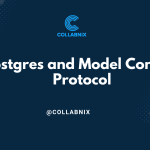
 Just as USB-C provides a standardized way to connect your devices to various peripherals and accessories, MCP provides a standardized way to connect AI models to different data sources and tools. MCP is an open protocol that standardizes how applications provide context to LLMs. MCP helps you build agents and complex workflows on top of LLMs. […]
Just as USB-C provides a standardized way to connect your devices to various peripherals and accessories, MCP provides a standardized way to connect AI models to different data sources and tools. MCP is an open protocol that standardizes how applications provide context to LLMs. MCP helps you build agents and complex workflows on top of LLMs. […]